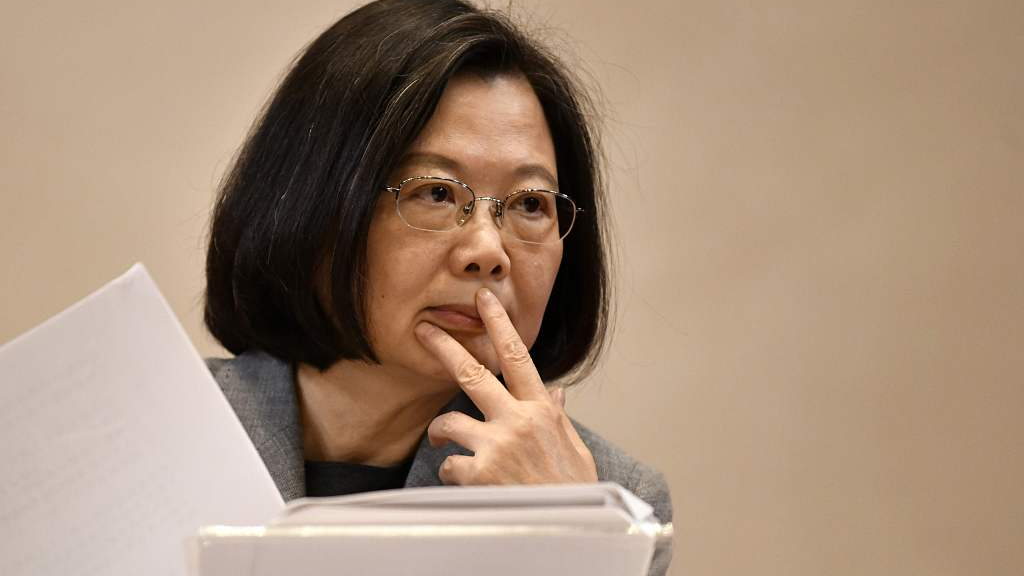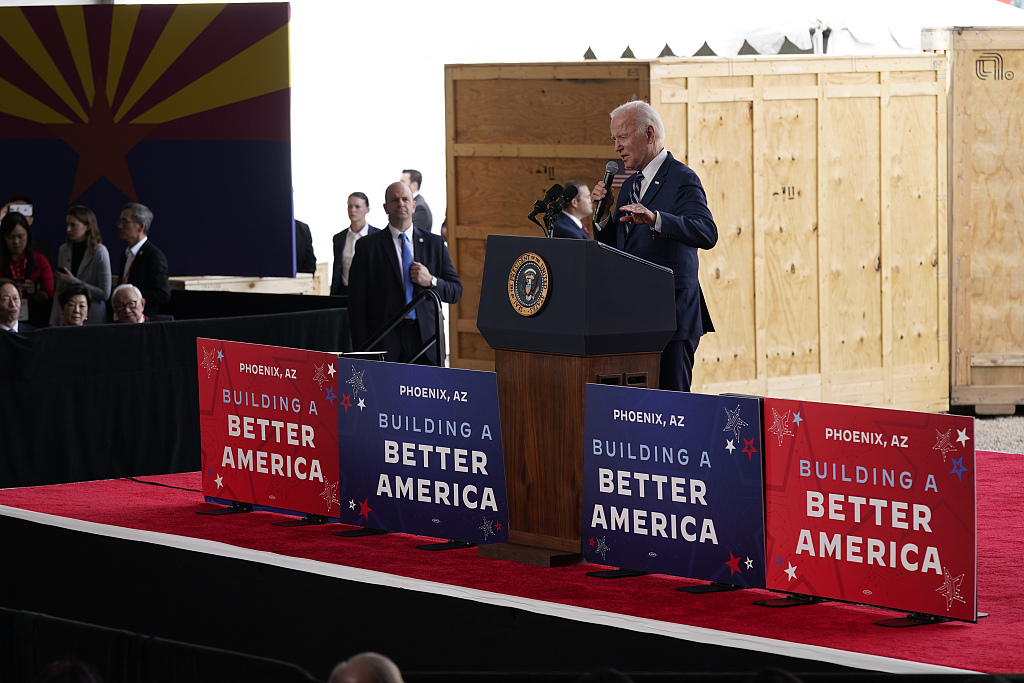
Taiwan regional leader Tsai Ing-wen attends a press conference in Taipei, Taiwan, China, January 5, 2019. /CFP
Taiwan regional leader Tsai Ing-wen attends a press conference in Taipei, Taiwan, China, January 5, 2019. /CFP
Editor's note: Keith Lamb is a University of Oxford graduate with a Master of Science in Contemporary Chinese Studies. His primary research interests are China's international relations and "socialism with Chinese characteristics." The article reflects the author's opinions and not necessarily the views of CGTN.
There is but one China. After Honduras recently established diplomatic relations with Beijing, there are now only a mere 13 states that have "diplomatic relations" with the Taiwan region. China's legal authority over the Taiwan region is recognized by the UN and even the flailing U.S. hegemon.
Despite this legal authority, history is a messy business, especially for countries that have been subject to colonial and neo-colonial interference, which has created political hotspots like the Taiwan question today.
Despite Beijing's patience, it has red lines. It will not be pushed around and it will never tolerate an independent Taiwan, which is an integral part of China.
Thus, should independence be declared then China would be forced to take hard measures to resolve the issue of its sovereignty, which is recognized by nearly all states. This would be a catastrophe for East Asia and risks setting the world alight. As such, it is absolute folly for anyone to be playing a game of "independence."
But this is precisely what Taiwan regional leader Tsai Ing-wen is doing when she threatens to have "state-to-state" contact with U.S. officials under the pretext of a layover in the U.S. on her way to Central America.
In this game, she holds the future of the people of Taiwan hostage. On her visit, she evokes the hackneyed language of democracy while simultaneously coming to the U.S., a paper democracy that does not govern for the people. With her mind colonized by U.S. ideology, she blindly accepts the broken definitions of democracy while also ignoring the wider issue of global democracy, which denies Taiwan's independence and vehemently rejects sovereign interference that is characterized by Tsai's layover in the U.S.
Surely, with the destruction of the Nord Stream pipeline, widely believed to be a product of U.S. aggression that has destroyed the competitiveness of German industry, which has now conveniently become more dependent on the U.S., can Tsai in good conscience believe the U.S. has Taiwan's best interests at heart? Indeed, Taiwan's semiconductor industry is being coveted by the declining U.S. hegemon, which is facilitating Taiwan's semiconductor industry's transfer to the U.S. mainland.

President Joe Biden delivers a speech after touring the building site for a new computer chip plant of Taiwan Semiconductor Manufacturing Company, in Phoenix, Arizona, U.S., December 6, 2022. /CFP
President Joe Biden delivers a speech after touring the building site for a new computer chip plant of Taiwan Semiconductor Manufacturing Company, in Phoenix, Arizona, U.S., December 6, 2022. /CFP
By hosting Tsai, the U.S. is projecting ambivalence which could lead to a dance towards war if China's red line on Taiwan is crossed. It would be a war that Taipei and its U.S. backers would inevitably lose, but this doesn't concern the U.S., which has demonstrated its tenacity in allowing others to fight its geopolitical battles while profiting from weapons sales and scooping up the economic benefits from destroying its "allies" competitiveness.
In Taiwan, there is a growing consciousness of the intricacies of the layout of the geopolitical chessboard emerging that is determined to make Taiwan a sacrificial pawn. More than 30 political groups have united in Taiwan to protest against what they call a "betrayed visit" by Tsai to the U.S., which they believe is about Tsai colluding with U.S. interests to turn Taiwan into this pawn, a pawn which they call the "destruction of Taiwan" plan devised by the U.S.
Wu Jung-yuan, the chairman of Taiwan's Labor Party and a convener of the Cross-Strait Peace Forum, believes that Tsai knows that the path towards "Taiwan independence" is suicidal and that she is deceiving the people to follow her and the U.S. This seems plausible, which means Tsai, who is not acting in the interests of the people she claims she represents by throwing her allegiance with a foreign power, is undemocratic to her core.
Wang Wu-lang, the secretary-general of the Labor Rights Association, providing more evidence that Tsai rules not for the democratic interests of the people but for the interests of a foreign power, pointed out that Tsai had conferred the Order of Brilliant Star to former White House national security advisor Robert O'Brien, who made statements about Taiwan like the proposal to destroy Taiwan's semiconductor industry.
In contrast to Tsai's provocative visit to the U.S., Ma Ying-jeou, the former chairman of the Chinese Kuomintang, has been building bridges with the Chinese mainland by visiting and meeting top officials there. Symbolic of his intentions, he is followed by students from Taiwan who represent the future of the island. It is this symbolism of peace and cooperation that represents the best course for all Chinese ethnic groups on both sides of the Taiwan Strait.
(If you want to contribute and have specific expertise, please contact us at opinions@cgtn.com. Follow @thouse_opinions on Twitter to discover the latest commentaries in the CGTN Opinion Section.)